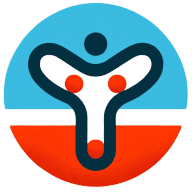How Can Patient Education Impact the Management of An Endocrine Condition?
Diving into the world of endocrine health, this article unravels the transformative power of patient education on disease management. It offers a deep dive into tailored strategies that have been validated by leading professionals in the field. Uncover actionable advice from specialists to navigate and improve conditions like diabetes and PCOS with confidence.
- Empower Families for Better Glycemic Control
- Support and Educate for PCOS Management
- Improve Hypothyroidism with Proper Medication Timing
- Educate for Better Diabetes and Hypothyroidism Outcomes
- Implement Diabetes Education for Better Health
- Educate and Empower for Better Diabetes Management
Empower Families for Better Glycemic Control
As a pediatrician, I've seen firsthand how patient education can dramatically improve outcomes for children with endocrine conditions. For example, in managing Type 1 Diabetes, educating families about carbohydrate counting, insulin administration, and recognizing hypo- and hyperglycemia symptoms is crucial. Empowered families are more likely to adhere to complex treatment plans, leading to better glycemic control and fewer long-term complications. This collaborative approach, where families become active participants in their child's care, is essential for successful management and improved quality of life. It's not just about telling them what to do, but explaining the why behind the recommendations.

Support and Educate for PCOS Management
Patient education is powerful, but when paired with genuine support, it can change lives. Let me share an example from my practice that truly touched me. A woman in her early 30s came to me frustrated and overwhelmed. She had been diagnosed with polycystic ovary syndrome (PCOS) years ago but never received a clear explanation about what it meant—or how it affected her body. She felt dismissed and alone in her struggle with weight gain, fatigue, and irregular cycles, which impacted her confidence and relationships. Our first step was education. I sat with her during our telehealth consultation and walked her through what PCOS is: how it ties into insulin resistance and hormonal imbalances. But I didn't stop there. I also reassured her that her feelings were valid and that progress was possible. Together, we created a plan tailored to her needs—simple dietary shifts, regular movement, and personalized medication to address her symptoms. What made the difference was the ongoing support. Through follow-ups, I was there to celebrate her wins, like her first weight loss milestone and improved energy. And when setbacks happened, like holiday stress throwing her off track, we discussed strategies without judgment. Six months later, she told me, "I finally feel like someone cares—not just about my symptoms, but about me." Her cycles had regulated, she felt more in control of her body, and her confidence had blossomed. Education gives patients the knowledge they need, and support gives them the courage to keep going.
Improve Hypothyroidism with Proper Medication Timing
Patient education is one of the most important tools in managing endocrine conditions. For example, I worked with a patient who had hypothyroidism and was struggling with symptoms despite taking their medication regularly. The issue wasn't just about the dosage; it was also about understanding how their daily habits were affecting their condition. We discussed the best way to take thyroid medication on an empty stomach and away from calcium or iron supplements and how small dietary changes could help improve their hormone balance.
As the patient learned more about their condition, they started noticing patterns and keeping track of their symptoms. This made our follow-up visits much more effective and helped us manage their treatment better. Over time, their hormone levels became stable, their symptoms improved, and they felt much better overall. This experience showed me how education can help patients take control of their health and work collaboratively with their doctor for the best results.

Educate for Better Diabetes and Hypothyroidism Outcomes
Good day,
Medical professionals, can you provide an example of how patient education has impacted the management of an endocrine condition?
One impactful example of patient education in endocrine disease management is diabetes care. Educating patients about blood sugar monitoring, diet, and medication adherence significantly improves glycemic control and reduces complications. When patients understand how lifestyle factors such as carbohydrate intake and physical activity affect glucose levels, they can make informed choices that stabilize their condition and prevent long-term complications like neuropathy or kidney disease.
Another example is hypothyroidism management, where educating patients on proper medication timing (e.g., taking levothyroxine on an empty stomach) improves absorption and effectiveness. Many patients are unaware that certain foods, supplements, or medications (like calcium or iron) can interfere with thyroid hormone levels, leading to persistent symptoms despite treatment. Clear guidance on these factors enhances treatment outcomes.
Ultimately, effective patient education empowers individuals to take an active role in their condition, leading to better self-management, improved adherence to treatment, and reduced healthcare complications. By integrating clear, evidence-based guidance, medical professionals can enhance both patient outcomes and overall healthcare efficiency.

Implement Diabetes Education for Better Health
Patient education plays a critical role in managing endocrine conditions like diabetes. For instance, in our practice, we implemented a diabetes education program that taught patients about blood sugar monitoring, nutrition, and the importance of medication adherence.
One patient, struggling with uncontrolled blood sugar levels, attended a session where they learned how specific foods impacted their glucose levels and how to adjust their insulin dosage accordingly. By applying this knowledge, the patient reduced their HbA1c from 10% to 7% over six months, improving their overall health and lowering the risk of complications.
This example highlights that empowering patients with knowledge fosters self-management and better outcomes. Education isn't just about explaining conditions—it's about equipping patients with actionable tools they can use in their daily lives.

Educate and Empower for Better Diabetes Management
I've seen firsthand how patient education can significantly impact the management of endocrine conditions, particularly in diabetes care. One example that comes to mind is a patient I worked with who had recently been diagnosed with type 2 diabetes. Initially, they were overwhelmed and unsure of how to manage their condition, especially when it came to lifestyle changes like diet and exercise.
I spent a lot of time educating them about the importance of balancing blood sugar levels, understanding how their diet could affect their condition, and teaching them how to read food labels. I also introduced them to a simple blood sugar monitoring routine. At first, they were hesitant about checking their levels regularly, but after a few weeks, they started to see patterns between what they ate and how their body responded.
The real turning point came when they began to take ownership of their health. They understood how their choices affected their condition, and with that knowledge, they felt empowered. Within a few months, their blood sugar levels stabilized, and they even managed to reduce their medication dosage. It really highlighted how proper education doesn't just inform-it inspires action and leads to better health outcomes.



